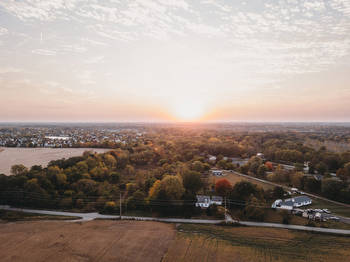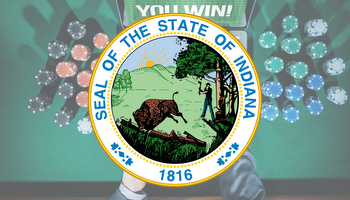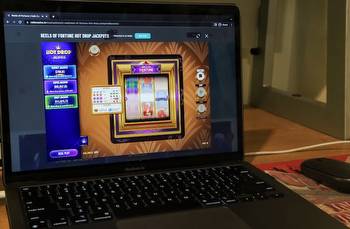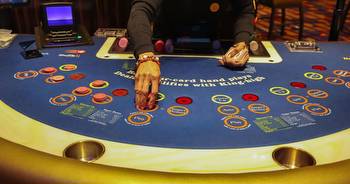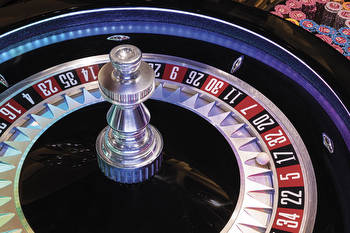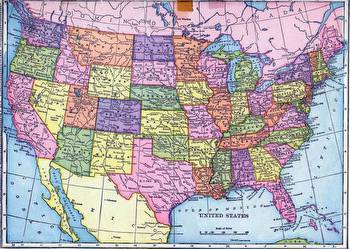Legal online gaming no threat to Indiana's casino industry, study finds

The Hoosier State could legalize real-money slot machines and casino table games played over the internet, known as iGaming, without significantly cutting into earnings or employment at its 12 brick-and-mortar casinos, including the four in Northwest Indiana.
That's the conclusion of a new study released Tuesday of the potential impacts of iGaming in Indiana that was commissioned by the Indiana Gaming Commission and conducted by Pennsylvania-based Spectrum Gaming Group.
In its 103-page report, Spectrum analyzed how the launch and ongoing development of iGaming in the seven states where it's legal, including the "big three" of Michigan, Pennsylvania and New Jersey, positively and negatively affected existing gaming enterprises in those states.
Spectrum found iGaming tended to attract male and female players about equally, particularly in the 21-39 age group, in contrast to online sports wagering whose participants are overwhelmingly male.
"The traditional casino industry has long searched for an effective means of attracting a younger demographic. The retail industry’s core players — particularly slot players — continue to age, and are not being replaced by younger players. As iGaming offers a broader demographic reach, it would help address that demographic challenge," the study said.
According to the report, Indiana's brick-and-mortar casinos also could benefit from iGaming if the licenses to operate online gaming were linked to the state's existing casinos, similar to how Indiana online sports wagering operators must affiliate with a local gaming property.
Spectrum said such an arrangement appropriately recognizes the significant investment in facilities and employees made over several decades by Indiana's traditional casinos while opening the door to increased on-site casino visits from initially online players.
Already the parent companies of Northwest Indiana's four casinos are engaged in iGaming elsewhere. Boyd Gaming (Blue Chip) offers iGaming in Pennsylvania; Caesars Entertainment (Horseshoe) has iGaming in Pennsylvania and New Jersey; Penn National (Ameristar) features iGaming in Michigan, Pennsylvania and West Virginia; and Hard Rock does iGaming in New Jersey.
At the same time, Spectrum cautioned that permitting unaffiliated iGaming operators may enable them to market against in-person casino visits, as they did in New Jersey, by emphasizing the convenience of always playing from home instead of driving, for example, from Lafayette or Kokomo to a Northwest Indiana casino.
Nevertheless, Spectrum is confident iGaming would grow the state's total gaming market without needlessly cannibalizing existing operators or imperiling employment at Indiana casinos.
"When retail casino operators offer iGaming, they can be expected to leverage the digital offering to enhance and grow their land-based revenue by marketing their amenities and their loyalty program to a broader demographic," Spectrum said.
Spectrum predicts Indiana would see $469 million in iGaming "win," or revenue after paying successful bettors, in the first year of operations, with win growing to $663 million in year two and $830 million in year three.
Depending on the state tax rate applied to iGaming — where a higher rate is more palatable because iGaming has significantly lower operating costs compared to a traditional casino — iGaming could add $100 million, or more, each year to the state's bottom line.
In comparison, Indiana's casinos reported $2.5 billion in win and paid $691.5 million in wagering taxes between July 2021 and June 2022, according to the Indiana Gaming Commission.
Spectrum said the biggest iGaming challenges Indiana is likely to face include implementing measures to prevent money laundering, underage play, problem gambling, excessive promotions and meeting the need for expedited approval of new varieties of games.
"With a mature casino industry and digital sports betting in place, Indiana is well positioned to integrate iGaming with its existing responsible-gaming measures, although additional funding should be dedicated for treatment services," the report said.
Various proposals to legalize iGaming have been filed at the Republican-controlled General Assembly in the past couple years.
None have received serious committee consideration, let alone action by either the full House or Senate.
That may change in January since the Spectrum study gives lawmakers a kind of guide of iGaming best practices to follow, similar to how Hoosier lawmakers legalized sports wagering in 2019 after weighing the data contained in an earlier research report.
At the same time, several key legislative gatekeepers have expressed concerns about the potential social ills of, in effect, putting a slot machine on every mobile phone in the state — opposition that could delay or prevent iGaming from coming to Indiana.












